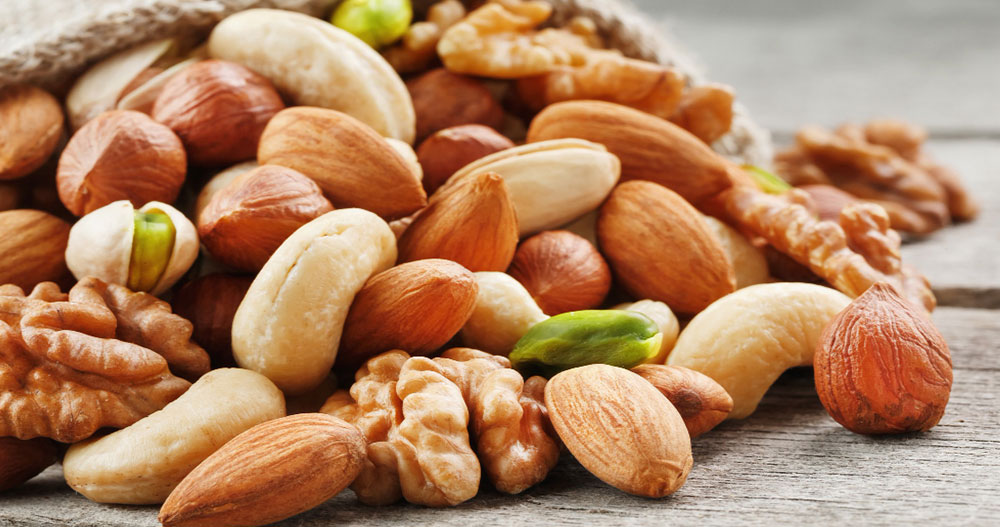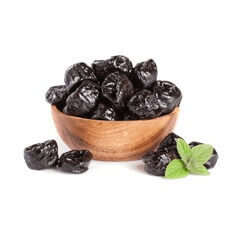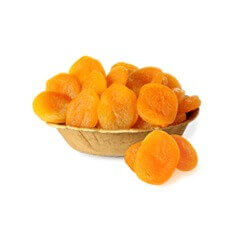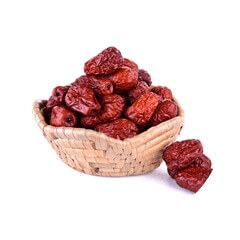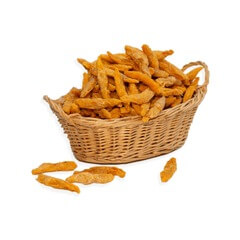New research from the University of South Australia reveals that consuming just two teaspoons, or 10 grams, of nuts per day can boost cognitive health in individuals aged 55 and over. The study observed 4,822 Chinese adults over the course of 22 years as part of the China Health Nutrition Survey. The data collected showed that 17% of participants, specifically those who regularly ate peanuts, experienced improved cognitive health.
Improved Memory
Their results showed that people who regularly consumed more than 10 grams of nuts per day were almost half (40%) less likely to suffer from poor cognitive functioning compared to those who did not consume it, and even recorded an improvement in memory functions, reasoning skills and thinking.
The results remained true even after the researchers took into account geographical and behavioural factors, as well as the subjects’ body mass index and energy intake.
Rich in Protein and Antioxidants
The researchers point out that the different types of nuts contain good fats, protein and fibre and nutritional properties to lower cholesterol and boost brain health. Peanuts, particularly eaten by study subjects, contain antioxidants with anti-inflammatory effects that may help reduce cognitive decline.
According to the director of a study, middle-aged individuals who consume over 10 grams (equivalent to two teaspoons) of nuts per day can improve their cognitive functioning by 60%. This improvement can delay the natural cognitive decline by almost two years compared to those who do not consume nuts.
Dried Fruits: Consumption Advice
Due to their low water content, dried fruits are richer than their fresh counterparts in an equivalent quantity. On average, 100g of dried fruit contains between 200 and 300 kcal. In addition, they are a real mine of nutrients, fibres, and trace elements and do not have cholesterol. That’s why marathon runners and other endurance athletes love them. However, dried fruits have a defect, the absence of vitamin C, which does not support the drying phase. Whatever you do in modern life, dried fruits come in handy. It is enough to eat small quantities to have energy and a whole contribution in mineral salts, fibres and trace elements.
Complementarity
That’s the word to remember. Dried fruits are not made to replace other foods but to be introduced in small quantities daily. For example, they can be used in making recipes, incorporated into different culinary preparations (starters/salads, main courses, desserts/yogurts/creams, etc.) or eaten plain as a snack.
Very interesting from a nutritional point of view, they are less so in terms of calories. Be careful, especially with oilseeds. Limit yourself during aperitifs, where the calorie rate often tends to explode. “The rule: indulge yourself while consuming them with caution. Tasting a handful a day is ideal. Half dried fruit, rich in energy; half nuts, rich in good fats, omega three and unsaturated fatty acids.
Pay Attention to Marketing.
Before consuming, remain vigilant. The almond is one of the best examples of a healthy product transformed by marketing to increase sales, with the side effect of altering its benefits.
This almond tree fruit is rich in monounsaturated and polyunsaturated fatty acids, vitamin E, B1, B6 and B9, but also in magnesium, potassium, phosphorus and iron. These characteristics make the almond excellent for your health if you bite a few a day. Almonds help you lose weight and lower cholesterol. They contribute to the proper functioning of the heart and fight against diabetes. Also, know that a handful of almonds contains more protein than an egg; vegetarians will confirm it.
Reading this, you have only one desire: running to buy some in the nearest store. But the self-righteous heads of marketing have been there when they realize that, lightly toasted, this rosaceae crackle better to the bite. Then they saw that when salted well, they made people salivate more. But that wasn’t enough, so they added an irresistible smoky taste.
Their nutritional qualities are modified by roasting almonds, salting, and smoking. Cooking eliminates the polyunsaturated fatty acids and many vitamins; the salt can only hold by adding peanut oil. We then speak of an unbalanced product.
Alas, the almond is not an isolated case; hundreds of products have been modified to please consumers so that we eat “a bit of everything.” Cooking the food yourself is the best way to avoid making mistakes.
A Healthy Diet with Nuts and Dried Fruits
When it comes to maintaining a healthy diet, dried fruits are often seen as a good option. However, it is important to be careful with your portion sizes. Eating a small bowl while watching TV might seem harmless, but it could result in consuming hundreds of extra calories without realizing it.
Some types of nuts, like macadamia nuts, are particularly high in calories. For example, 40 grams of macadamia nuts contain around 240 calories. Other nuts, like almonds, peanuts, pistachios, and walnuts, are slightly lower in calories, with around 160-200 calories per 40 grams. Many commercially available nuts are also seasoned or salted, which increases their fat content. For a healthier option, choose raw nuts and consider toasting them in the oven at 175°C without adding oil. Avoid sugary or chocolate-coated nuts if you want to reap the health benefits.
Dried fruits, too, can be high in sugar. While the process of dehydration removes water, the sugar content remains high. For example, apricots, dates, and figs can contain up to 65% sugar, much of which is fructose. While this is natural sugar, consuming too much fructose has been linked to weight gain and cardiovascular disease.
If you want a healthy snack, choose nuts and dried fruits that are high in fibre, such as almonds, hazelnuts, grapes, and pistachios. These are more satiating and can help you feel fuller for longer. Eating around 18-36 grams daily can help you consume around 130 fewer calories per day. With a little creativity, there are plenty of ways to enjoy these healthy snacks in your meals and snacks without feeling deprived.
Dried Fruits to Flavour Water
Getting children to drink water is sometimes difficult, as they prefer sugary drinks and sodas. However, their consumption must be occasional. In order to bring a light taste to the water, you can let it infuse in a carafe of water with raisins or dried apricots, for example. This will encourage them to drink more without raising their blood sugar levels.
Adnoor is Canada’s premier destination for purchasing top-notch dried fruits, nuts, seeds, and basmati rice. With 25 years of leadership as the best supplier, we have earned a reputation as Canada’s best basmati rice supplier. Our utmost priority is delivering exceptional products that our customers can rely on and relish. For more details and an outstanding shopping experience, visit our website.

